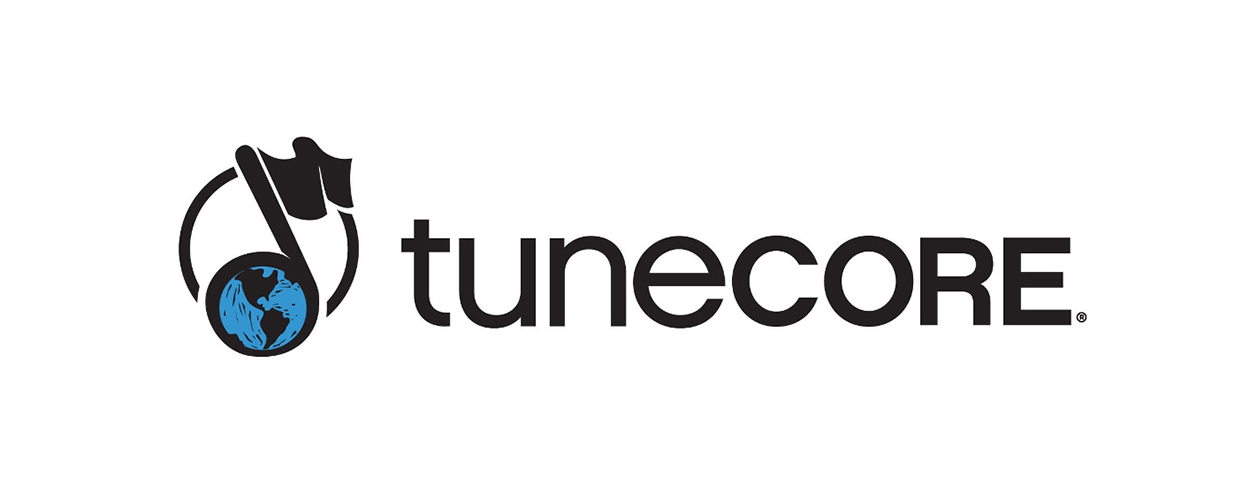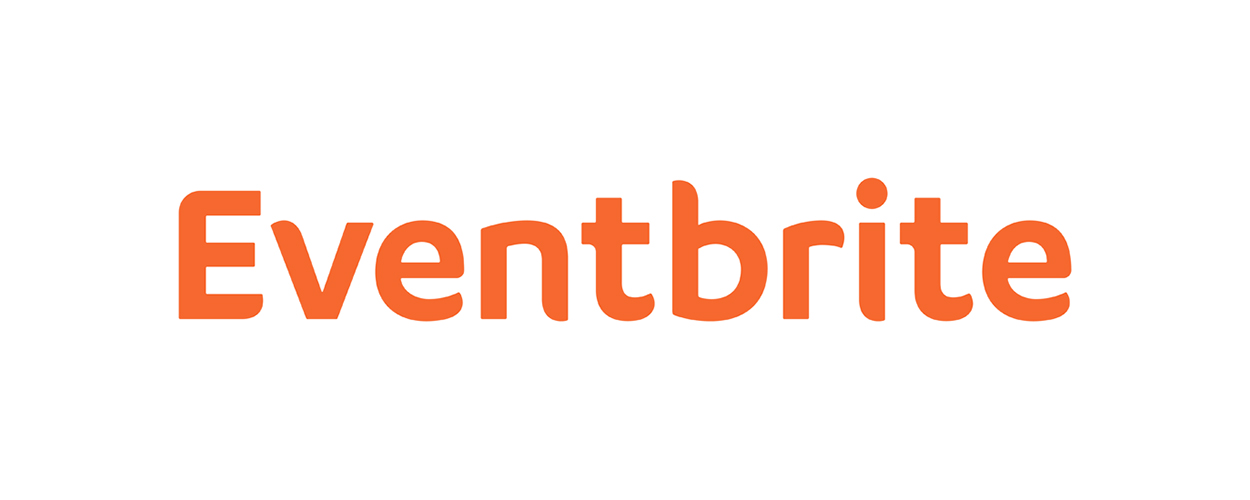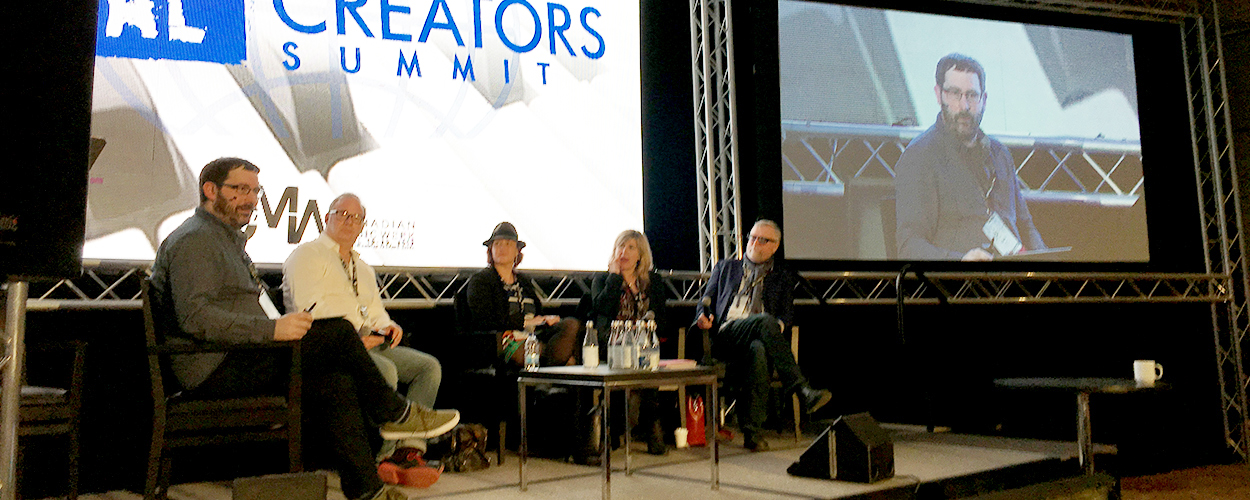This website uses cookies so that we can provide you with the best user experience possible. Cookie information is stored in your browser and performs functions such as recognising you when you return to our website and helping our team to understand which sections of the website you find most interesting and useful.
Friday 28 April 2017, 09:36 | By Chris Cooke
Digital Economy Act passes introducing new ticket tout regulations
Business News Legal Live Business Top Stories

While Theresa Mayhem’s General Election may have put the ongoing parliamentary investigation into secondary ticketing on hold, the proposed new regulations on the ticket touting business have made it onto the statute book. The revised Digital Economy Act got its royal assent yesterday, with amendments made by the Lords getting approval from the Commons before Westminster winds down for the big vote.
Those amendments include two relating to secondary ticketing. First, the bots ban outlawing the use of special software to hoover up large quantities of tickets from primary ticketing sites. Government ministers originally said this was unnecessary, as using such technology is arguably already against the law, but they subsequently backed the bots ban proposal.
Secondly, the obligations on ticket resellers to provide certain information about the tickets they are reselling – contained in the Consumer Rights Act 2015 – will be extended, so that that information must include a “unique ticket number that may help the buyer to identify the seat or standing area or its location”.
Both new measures have been welcomed by those campaigning for a better regulated secondary ticketing market, not least the music industry’s FanFair Alliance. Though those campaigners recognise that the new rules will only be of any use if they are enforced.
The regulations introduced in the Consumer Rights Act arguably haven’t been enforced very well. Though the government has said that it accepts the recommendations of the Waterson Review of the secondary market, which included the proposal that National Trading Standards be given the remit and the budget to do the enforcement in this domain.
Responding to passing of the Digital Economy Act, a spokesperson for the FanFair Alliance commented: “On top of government measures to criminalise the bulk-buying of tickets, this relatively minor amendment to the Consumer Rights Act, for a ‘unique ticket number’ to be displayed when a ticket is listed for resale, should greatly increase transparency in the so-called secondary ticketing market. If enforced, it will give users some assurances that the ticket they are buying actually exists, as well as disrupting the practices of hardcore touts that thrive on sites like Viagogo, StubHub, Get Me In! and Seatwave”.
They added: “Going forward, it is now vital that the UK’s consumer laws are enforced, and recommendations made in the Waterson Review of secondary ticketing are fully implemented. After the General Election, we will need details on how all these changes will work in practice. Only then, and combined with a concerted effort from industry and regulators, will this broken market be fixed and British audiences provided with the open and properly-functioning resale market they deserve”.
The Music Managers Forum, one of the key backers of the FanFair Alliance, also welcomed the new rules included in the DEA. Its CEO, Annabella Coldrick, said last night: “Industrial-scale ticket touting is a real blight on the UK’s live music scene, and a cause of growing concern for managers and artists alike. Members of the MMF were instrumental in setting up the FanFair Alliance to campaign for a fairer and more transparent resale market, and so we are delighted that government has listened to the concerns of artists and fans and moved forward with these sensible and pragmatic measures”.
She added: “We now need UK consumer law to be properly enforced. With that in place there will be a real opportunity to create a sustainable ticketing market that prioritises the needs of fans above the greed of touts”.
READ MORE ABOUT: Digital Economy Act 2017 | Secondary Ticketing
Friday 28 April 2017, 09:34 | By Chris Cooke
New lawsuit over Jefferson Starship name
Artist News Business News Legal

A founding member of Jefferson Starship has gone legal to try to stop the current incarnation of the band from using the name.
The rock band Jefferson Starship evolved out of the group Jefferson Airplane of course, and birthed the spin off outfit Starship, so that’s already pretty confusing. Guitarist Craig Chaquico was a founder member of the Jefferson Starship line-up, and subsequently played with Starship too.
The Jefferson Starship name was originally retired in the mid-1980s after a little legal wrangling between various members of the band. However Paul Kantner, a founder member of both Jefferson Airplane and Jefferson Starship, subsequently started using the latter moniker again in the 1990s.
Chaquico says that he gave permission for that latter use of the band’s brand, but that that agreement was with Kantner personally, and he died last year. Kantner’s final set of bandmates do not have his permission to continue using the name now and – says Chaquico – past agreements between the original members of the group mean his permission is required.
To that end the guitarist has asked a judge to intervene and prevent the current line-up from using the name. According to the Associated Press, he states that: “For this band line-up to tour and call itself Jefferson Starship is woefully misleading to the public and confuses longtime fans”.
READ MORE ABOUT: Jefferson Starship
Friday 28 April 2017, 09:30 | By Chris Cooke
TuneCore launches ramped up social media service
Business News Digital Labels & Publishers

DIY digital distribution platform TuneCore has announced the launch of a ramped up version of the TuneCore Social service it launched last year after acquiring JustGo.
Like JustGo, TuneCore Social provides tools to help DIY artists manage their social media presence. The newly launched TuneCore Social Pro is a paid-for version which offers extra tools and tips to artists looking to simplify the posting of messages to their social channels, and utilising the data that such channels return.
Says TuneCore chief Scott Ackerman: “Social media management can be a full-time job, and we want to make sure TuneCore members are focused on their art. We know that a successful online social media presence is essential to our artists’ success, so we prioritised the development of this tool and will continue adapting our resources to meet the demands of the evolving music industry and social media landscape”.
READ MORE ABOUT: TuneCore
Friday 28 April 2017, 09:27 | By Chris Cooke
Eventbrite adds Facebook integration in the UK
Business News Digital Live Business

Self-service ticketing firm Eventbrite has announced integration with Facebook in the UK, meaning people can now buy tickets from within the social network. It follows a similar tie-up with the social media firm in the US last year. The first promoter to make use of the service in the UK is the Womad festival.
Confirming the integration, Yoav Zeevi at Facebook says: “Our focus with ticketing on Facebook is to give people an easier way to attend the events that interest them and make selling tickets easier for our partners, like Eventbrite. We’ve gotten great feedback from our partners that posting on Facebook helps them drive sales and attendance”.
And for Eventbrite, Marketing Director UK & Ireland Marino Fresch says: “Buying tickets on Facebook, without ever leaving the app, is a much more intuitive, faster way to get into your favourite event. And this is just the beginning. The ability to buy tickets for interesting events, wherever you may be online, is changing the future of ticket sales. And it will benefit our event organisers, who are able to sell more tickets and in turn grow their revenues by reaching their fans at this crucial intersection”.
READ MORE ABOUT: Eventbrite | Facebook
Friday 28 April 2017, 09:24 | By Andy Malt
Epidemic Sound raises new funding
Business News Digital

A platform that provides royalty free music to YouTubers, Epidemic Sound, has secured new funding to further expand its business. The new cash injection comes from Kichi Invest, an investment company co-founded by Fredrik Wester, CEO of Swedish gaming firm Paradox Interactive.
Founded in 2009, Epidemic Sound provides library music and bespoke compositions to big brands and bedroom YouTube video makers where the producer pays a one-off fee or monthly subscription and doesn’t have to subsequently pay ongoing performance royalties per play. Last year it apparently turned over $6 million and this new round of funding more than doubles its valuation to $45 million.
“Currently, we have hundreds of thousands of content creators on YouTube using our music”, says founder and CEO Oscar Höglund. “We plan to ride this wave to dominate the global market and become the main provider of music to all manner of today and tomorrow’s online creatives and creators by 2020. We are excited to have Fredrik’s onboard as he has great knowledge and expertise”.
Kichi Invest CEO Oscar Ingdahl adds: “[Epidemic Sound] now boasts a global customer base, a healthy seven figure revenue and powers a large proportion of the mobile and online-media industry with a recurring subscription model for music – investing was a no-brainer for us. We are excited to impart our experience and help the team move from generating millions to billions in revenue”.
READ MORE ABOUT: Epidemic Sound | YouTube
Friday 28 April 2017, 09:20 | By Andy Malt
Outgoing MP Michael Dugher to head up UK Music
Business News Industry People Labels & Publishers

Cross-sector trade group UK Music has announced outgoing MP and former Shadow Secretary of State For Culture, Media And Sport Michael Dugher as its new chief executive. He will replace Jo Dipple, who revealed back in January her plans to leave the trade body after five years in the top job.
Dugher, who has been Labour MP for Barnsley East since 2010, announced his intention to step down as a politician earlier this month. In a statement at the time, he said: “I have worked for the Labour movement for nearly all of the past 20 years. Throughout that time I have always tried to fight for a Labour party that is in touch with working class people and one that can get into government so we can actually do something to really help people. I wish the party and more importantly the people of Barnsley nothing but the best for the future”.
“There are always lots of reasons when you make any big decisions”, he added mysteriously. “It’s time now for me to make a difference in life outside of politics. It’s also time that I do what is best for my wife and children, whom I love with all my heart”.
Of course, as head of UK Music, with its lobbying role, he will continue to come into contact with politics and politicians on a regular basis, but he’ll also get to spend time trying to make all of the different music industry trade bodies agree with each other, which I’m sure will make a nice change.
No longer being coy about his future, Dugher shouted yesterday: “I’m THRILLED to have been appointed Chief Executive of UK Music. I have engaged with the organisation for several years and have seen it go from strength to strength thanks to its board, chairman Andy Heath and previous CEOs Feargal Sharkey and Jo Dipple. There is a great team at UK Music who do brilliant work and I’m really looking forward to working with them”.
He continued: “British music is a world-beating industry which brings huge economic benefits for our country. I am determined to work with all the individual members of UK Music – on the business and creator side – to ensure our industry is protected during the Brexit process and that we continue to thrive. Safeguarding intellectual property, protecting venues, promoting new opportunities and broadening diversity in the sector are all central to our work at UK Music”.
Quieting any doubters, he added: “Music has been a lifelong passion for me and I’m looking forward to helping make a real difference as UK Music’s new chief executive”.
The aforementioned Heath also commented: “Michael is a first class and dynamic choice with a proven track record as a powerful supporter of British music – both the artists and the commercial organisations. He knows the business and politics inside out. Jo has been a tireless champion for the music sector and has built an organisation which is now a powerful unified voice for the industry”.
Yeah. Unified. Anyway, Dugher will take up his new position in mid-May.
READ MORE ABOUT: Michael Dugher | UK Music
Friday 28 April 2017, 09:19 | By Andy Malt
Haim have something to tell you
Artist News Releases

Haim are back. Which is want you wanted, wasn’t it? They’ll release a new album, called ‘Something To Tell You’, on 7 Jul.
The news was announced yesterday with a studio-based live performance of new song ‘Right Now’, in a video shot by that Paul Thomas Anderson of making films and music videos fame. It was premiered to a select few the night previously at a party at Canters Deli in Los Angeles, where the sisters Haim played their first show almost eighteen years ago.
Here is that very video:
READ MORE ABOUT: Haim
Friday 28 April 2017, 09:15 | By Andy Malt
Lapalux finds new album in ruins
Artist News Gigs & Festivals Releases

Lapalux will release his third album, ‘Ruinism’, on 30 Jun, through Flying Lotus’s Ninja Tune imprint Brainfeeder.
“‘Ruinism’ is a made-up term I use to describe the way in which blended sound palettes and inspirations interact with one another to form this album”, the producer says of the title. He created the samples on the record using live instruments, then went to work on each one “until it was ‘ruined'”, before building them back into the finished tracks.
First single, ‘Rotted Arp’, featuring Louisahhh, is out now, of which he says: “It sums up the whole idea of this record – having Louisahhh’s vocals made me think of this track as a much more meaningful piece and helped me push it further and further into a developed abstract dance track”.
You can catch Lapalux live in London at Mick’s Garage on 25 May. And you can listen to ‘Rotted Arp’ here:
READ MORE ABOUT: Lapalux | Louisahhh
Friday 28 April 2017, 09:10 | By Andy Malt
One Liners: Jack White, BMG, Spotify, more
Artist News Business News Deals Digital Gigs & Festivals Industry People Labels & Publishers One Liners Releases

Other notable announcements and developments today…
• Jack White has signed a global publishing agreement with Universal Music Publishing Group to administer his entire catalogue. “We are excited”, says White’s manager Ian Montone. “I am thankful”, adds UMPG boss Jody Gerson.
• BMG has promoted Keith Hauprich to General Counsel & SVP Business & Legal Affairs for North America. “I am delighted”, says BMG US president Zach Katz.
• Spotify’s UK Country Manager Chris Forrester (he managed operations in this country, not the UK country music playlist) has departed the company, just under a year after joining. Spotify told Campaign that the split was “amicable”.
• MelodyVR has appointed Ian Hanson as a non-executive director. Currently Chief Operating Officer of Global, he also previously held the same role at EMI.
• The PRS Foundation has secured 200,000 euros from the European Commission’s Creative Europe fund for a new European talent development programme called Keychange, an expansion of its UK Women Make Music Fund. “Keychange’s focus on giving talented women access to international networks and new markets at critical stages in their career will help them realise their potential as future leaders of an industry that is ready for change”, says the foundation’s Vanessa Reed.
• PJ Harvey is releasing two new songs today, ‘A Dog Called Money’ and ‘I’ll Be Waiting’.
• A new track has been released from Chuck Berry’s upcoming posthumous album, ‘Chuck’, has been released. Here’s ‘Wonderful Woman’.
• The Afghan Whigs have released the video for new single ‘Oriole’.
• Bonobo has released the video for ‘Bambro Koyo Ganda’, featuring Innov Gnawa.
• Little Dragon have released the video for new single, ‘Celebrate’.
• Doldrums has announced that he will return with a new album, ‘Esc’, on 30 Jun. Here’s first single, ‘Runner Up’.
• Analog Africa is releasing a new compilation, ‘Pop Makossa – The Invasive Dance Beat Of Cameroon 1976-1984’ on 16 Jun. From it, here’s Bill Loko’s ‘Nen Lambo’.
• Blondie will be livestreaming a show in Berlin at 8pm tonight. Click here to tune in.
• Ride have announced that they will play Village Underground in London on 12 Jun. They’ve also released a new track, ‘All I Want’.
• You can probably be fairly confident that a genre has peaked when Disney gets in on it. So, allow me to introduce Disneyland Paris’s new EDM festival, Electroland.
READ MORE ABOUT: Analog Africa | Bill Loko | Blondie | BMG | Bonobo | Chris Forrester | Chuck Berry | Disney | Doldrums | Electroland | Ian Hanson | Jack White | Keith Hauprich | Little Dragon | MelodyVR | PJ Harvey | PRS Foundation | Ride | Spotify | The Afghan Whigs | Universal Music | Universal Music Publishing
Friday 28 April 2017, 08:57 | By Andy Malt
Beef Of The Week #352: Aretha Franklin v Dionne Warwick
And Finally Artist News Beef Of The Week

Sometimes someone says something so egregious about you, so unbelievable offensive, that you still find yourself seething about it years later. It’s probably best to let old grudges go, but sometimes that’s easier said than done when something so blatantly untrue is said about you.
Which is how Aretha Franklin came to send a “lengthy fax” to the Associated Press this week, correcting the “libel” Dionne Warwick committed five years ago when she said at Whitney Houston’s funeral that Franklin was Houston’s godmother.
Speaking at the funeral in 2012, Warwick, who is Houston’s cousin, introduced Franklin to the 1500 odd mourners, only to discover that she was not actually there – she had been too unwell to appear. Correcting her mistake, she said: “Ree’s not here, but she is here [in spirit]. She loves Whitney as if she were born to her. She is her godmother”.
I know. You’d be angry too, right? The matter was corrected a number of times subsequently by Houston’s mother Cissy. This included an interview with New York radio station WBLS, in which she said that Franklin was “not really” her daughter’s godmother, adding: “She was just a good, good friend of ours. We were always around [each other] and we called everybody everything”.
This did not placate Franklin though, who still reckons that Warwick’s comment did her serious damage. “At this point it isn’t about an apology, it’s about libel”, Franklin told the AP, following on from her fax laying out her claim against Warwick. “She blatantly lied on me … fully well knowing what she was doing”.
Being an actual family member, it is possible that Warwick was aware that Franklin was never actually tasked with Houston’s religious upbringing. Although, given that it was claimed for many years before Houston’s death that Franklin was indeed her godmother, it’s also arguably a thing even a cousin might legitimately mistakenly think. Especially as Houston’s mother apparently admits to having said as much.
The question, of course, is why did Franklin wait so long to go public with this, rather than moving to correct the error before it all grew out of hand?
“There’s been so much going on around [Houston], around the service, around the drugs, around her and Bobby [Brown] supposed to be fighting, I didn’t want to add anything to that and I didn’t want to be a part of that”, she explained. But now, with Houston’s death and the fallout from it far enough in the past, the time has come to raise this matter.
Also, it seems, she was reminded of the slight last week when she bumped into Warwick at the premiere of a documentary about Sony Music exec and Houston’s longtime mentor Clive Davis – ‘Clive Davis: The Soundtrack Of Our Live’ – at the Tribeca Film Festival.
“She said, ‘Give me a hug’. I said, ‘Oh hell no. You couldn’t be serious'”, recalled Franklin. “We’ve never been friends and I don’t think that Dionne has ever liked me”.
Despite the fax, the interview and the repeated claims that what Warwick said constitutes libel, Franklin gave no apparent indication that she plans to go legal over this. Time will tell.
In the meantime, a spokesperson for Warwick said: “She will not dignify a response to the statement made by Aretha Franklin”.
For the record, Whitney Houston’s godmother was actually Darlene Love. Unless she wasn’t, in which case we apologise.
READ MORE ABOUT: Aretha Franklin | Dionne Warwick
Friday 28 April 2017, 07:48 | By Paul Vig
Vigsy’s Club Tip: DJ Mag Sessions at Egg
Club Tip CMU Approved

The effervescent DJ Mag Sessions head to Egg London tonight, keeping it fresh with Santé and Sidney Charles, A-Trak and Alexis Raphael.
Regular partners Santé and Sidney Charles top the main room line up playing a good mix of techno and house, while acclaimed producer and DJ Alexis Raphael cuts across most strands of electronic music.
On the terrace will be the DMC’s youngest ever turntable champion, A-Trak, who won the contest in 1997 aged fifteen. Mr Trak – aka Alain Macklovitch – has played and toured clubs and festivals alike, and even supported Kanye West, while also running his Fool’s Gold label. And who can forget the overly done collaboration with Armand Van Helden as Duck Sauce?
Finally, the loft sees Djoko with Rich Pinder, Justin Pak with Sam Jepperson and Will Watt complete the line-up.
Friday 28 Apr, Egg London, 200 York Way, Kings Cross, London, N7 9AP, 11pm-7am, £20. More info here.
READ MORE ABOUT: A-Trak | Santé | Sidney Charles
Thursday 27 April 2017, 12:00 | By Chris Cooke
Spotify acquires blockchain team at Mediachain Labs
Business News Deals Digital Top Stories

How do you convince the music industry that you’re taking the data issues that continue to hinder the streaming business seriously? Tell em you’re going to fix it via the blockchain and ‘boom’, no one knows what you’re taking about, but boy are they impressed.
To that end, Spotify has bought itself a team of data and blockchain specialists to “further the streaming leader’s journey towards a more fair, transparent and rewarding music industry for creators and rights owners”.
The streaming firm has acqui-hired – if we’re allowing that term now – New York-based Mediachain Labs, the team behind the open-source Mediachain protocol who say that, over the last three years, they have “developed open, decentralised data infrastructure, built open-first applications to surface attribution for creators, and even prototyped our own cryptocurrency to reward creators and curators for their contributions to culture”.
But it’s the people rather than the company’s past products that Spotify is interested in. Quite what the digital firm wants the Mediachain team to work on isn’t clear, though the acquired company wrote in a blog post yesterday that “a shared data layer is key to solving attribution, empowering creators and rights owners, and enabling a more efficient and sustainable model for creativity online. The opportunity to join an organisation that shares this vision comes at a crucial time, when the relatively nascent blockchain community has few bridges to mainstream consumers, creators or the platforms they use to interact”.
As much previously reported, mediocre metadata attached to the music industry’s recordings mean streaming services often don’t know who performed on and produced a track, what song the recording contains, and who wrote, publishes and reps that song. Poor data makes it harder for services to fully credit all those involved in a track and to use that information to aid discovery tools, but more importantly makes it tricky for services to directly pay the owners and beneficiaries of song copyrights.
The streaming sector generally relies on the collecting societies to administer payments to songwriters and publishers – and, as discussed at CMU@CMW last week, some societies are better than others at that task. Meanwhile in the US, where there is no industry-wide mechanical rights society, Spotify and others have found themselves on the receiving end of lawsuits for failing to pay all the royalties due on the songs it’s streamed.
Some reckon that it is the music industry’s job to sort out its data issues, rather than relying on the streaming platforms to do it. Though Spotify made commitments about building a songs database in the wake of the aforementioned lawsuits, plus the platforms can use better data to improve the navigation and recommendation elements of their services. The Mediachain team may now be charged with fixing the bad data problem for Spotify.
READ MORE ABOUT: Mediachain Labs | Spotify
Thursday 27 April 2017, 11:58 | By Chris Cooke
Blurred Lines case shouldn’t have gone to a jury, says lawyer
Artist News Business News Labels & Publishers Legal

Why did the question of whether or not Robin Thicke and Pharrell Wiliams’ ‘Blurred Lines’ ripped off Marvin Gaye’s ‘Got To Give It Up’ even go to jury? I mean, we all know about juries, right? Never trust a jury.
The appeal process in the high profile ‘Blurred Lines’ song-theft case continues to rumble on with a new submission from lawyers repping Thicke and Williams, who want the original ruling in favour of the Gaye family overturned. In the new filing, the ‘Blurred Lines’ twosome’s legal reps argue that their clients should have won the case on summary judgement, without the whole matter being taken to jury trial.
As much previously reported, one of the key issues in the ‘Lines’ case is what elements of ‘Got To Give It Up’ are actually protected by copyright. The dispute was over the song, not the recording, and technically under American law only the core composition of ‘Got To Give It Up’ as registered with the country’s Copyright Office has copyright protection. Lawyers for Thicke and Williams argue that any similarity between ‘Blurred Lines’ and ‘Got To Give It Up’ are in the original recordings of the two songs, which have the same ‘vibe’, rather than the core compositions.
The argument goes that a jury couldn’t be expected to appreciate these complexities and – while the judge didn’t allow the original recording of ‘Got To Give It Up’ to be played in court – lawyers for the Gaye family gave evidence that related to the recording rather than the core composition.
Say the duo’s lawyers in their latest court filing, according to The Hollywood Reporter: “The two songs in this case are not the same, and the district court should have granted summary judgment. Rather than address the fatal flaws in their musicology evidence, the Gayes attempted to distract the court with irrelevant issues and assert a copyright in musical elements beyond those found in their copyrighted work, which is the lead sheet – and not the sound recording – to Marvin Gaye’s musical composition ‘Got To Give It Up'”.
The filing adds that just because musicologists disagree on whether or not two songs a sufficiently similar to constitute copyright infringement, that alone shouldn’t necessitate a jury trial. “The district court erred in holding that the issue of substantial similarity was for the jury just because the musicology experts presented conflicting opinions,” say the lawyers. “Under the district court’s approach, musical composition cases would enjoy special immunity from summary judgment determinations merely because the parties offer competing musicology experts”.
Beyond all those legal technicalities, the latest submission again returns to the long-running inspiration-v-infringement debate, and the argument that the ruling in the ‘Lines’ case sets a dangerous precedent. “A ‘groove’ or ‘feeling’ cannot be copyrighted, and inspiration is not copying”, adds the legal filing.
Fun times.
READ MORE ABOUT: Marvin Gaye | Pharrell Williams | Robin Thicke
Thursday 27 April 2017, 11:56 | By Chris Cooke
The battle for lost MegaUpload data goes to the Fourth Circuit
Business News Digital Legal MegaUpload Timeline

So, this one’s still rumbling on. Kyle Goodwin, the sporty filmmaker who lost access to his archive of self-filmed sports videos when MegaUpload was shut down in 2012, has gone back to court yet again in a bid to get his content back.
As much previously reported, when the US authorities shut down the often controversial file-transfer platform MegaUpload in 2012 on copyright grounds, as well as cutting off access to mountains of pirated material, some people lost access to the files they legitimately stored on the now defunct company’s servers.
In the main the American authorities have shown little concern over those caught in the crossfire during their big assault on MegaUpload, noting that the file-transfer firm’s small print urged users to keep local back-ups of their files.
The music and movie industries – while not objecting to the likes of Goodwin getting their content back – hindered that process by opposing a temporary reconnection shortly after shutdown. Since then they’ve done little to help Goodwin, despite him being a fellow copyright owner, and the fact such contempt only further damages the reputation of big rights owners like the Hollywood film studios and major record companies.
As the years have gone by, it gets ever harder for the likes of Goodwin to get their content back, as the servers once rented by MegaUpload get stacked in warehouses and gather dust. At best. Some have been wiped by their owners, while others may have become corrupted simply due to not being used in such a long time.
For their part, the courts have been much more sympathetic to Goodwin; not that that has helped. Backed by the Electronic Frontier Foundation, he has now taken his case to the Fourth Circuit appeals court, asking judges there to intervene.
According to Torrentfreak, EFF’s Senior Staff Attorney Mitch Stoltz says: “Mr Goodwin, and many others, used MegaUpload to store legal files, and we’ve been asking the court for help since 2012. It’s deeply unfair for him to still be in limbo after all this time. The legal system must step in and create a pathway for law-abiding users to get their data back”.
Goodwin’s lawyers want the Fourth Circuit to issue a ‘writ of mandamus’, which isn’t quite as exotic as it sounds, and is basically a superior court telling a subordinate court or government department to bloody well do their job properly. Because the government’s actions to date on this – the EFF’s lawyers add – is damn unconstitutional.
“The seizure and continued denial of access also violates Mr Goodwin’s constitutional rights”, says the new court submission. “Under the Fourth and Fifth Amendments, the government was obligated to execute the searches and seizures in a manner that reasonably protected the rights of third parties to access and retrieval”.
Noting that this case sets something of a precedent, given how common it is becoming for people to store digital content online, EFF’s Legal Director Corynne McSherry added: “We’re likely to see even more cases like this as cloud computing becomes increasingly popular. If the government takes over your bank, it doesn’t get to keep the family jewels you stored in the vault. There’s a process for you to get your stuff back, and you have a right to the same protection for your data”.
READ MORE ABOUT: Kyle Goodwin | MegaUpload
Thursday 27 April 2017, 11:54 | By Chris Cooke
Max Richter is the first signing to all new Decca Publishing
Artist News Business News Deals Labels & Publishers

You know how Universal’s Decca label launched a music publishing division last year? Well, it really ought to get round to signing someone. So hurrah, the all new Decca Publishing has signed Max Richter, who has composed music for film, TV and theatre, including Martin Scorsese’s ‘Shutter Island’ and Ari Folman’s ‘Waltz With Bashir’.
Says Richter: “I liked the idea of being the first signing to Decca Music Publishing, as we agreed to take a fresh outlook on how we approach music publishing together, at a time when the rules are changing as to how music can engage with the multidimensional creative landscape of today”.
Natasha Baldwin, who is heading up the Decca Publishing division, adds: “I’m incredibly proud to be working with Max Richter as the first signing to our new publishing division. He is spearheading a new generation of composers in a genre of music that is expanding in global popularity at a phenomenal pace. It’s an exciting time for neo-classical music and I feel privileged to be working at the forefront of this movement with such a visionary composer as Max”.
Photo by Rahi Rezvani.
READ MORE ABOUT: Decca | Max Richter
Thursday 27 April 2017, 11:48 | By Chris Cooke
Ad agency allied label announces distribution deal with Sony
Business News Deals Labels & Publishers

French ad agency Rupture has announced a distribution deal with Sony Music in France – and Sony’s The Orchard worldwide – for the company’s in-house label Rupture Records.
Rupture is the latest business venture from Alexandre Sap, who previously ran a label-marketing-agency combo allied to the communications group Havas, which now has partnerships with various Universal labels around the world, it having a shareholder in common with the mega-major’s parent company Vivendi.
Rupture – which will also operate vinyl-centric record stores in Paris, LA and New York in addition to its label and ad agency – will work with Sony on the distribution of its artist projects. Those include new material from Canadian folk singer Alejandra Ribera; solo projects from Donald Cumming, formerly of The Virgins, and La Rudd, formerly of Grand National; and a collaboration between Tunisian artist Mounir Troudi and Brian Eno.
Says Sap of his latest venture: “I decided to call our agency Rupture because we need to completely rethink current short term development politics for bands and labels … what short term profitability diktats show is, in fact, a lack of substance”.
READ MORE ABOUT: Rupture Records | Sony Music | The Orchard
Thursday 27 April 2017, 11:43 | By Chris Cooke
Record industry growth? Thank the retailers, say the retailers
Business News Labels & Publishers Retail

So, you know how the International Federation Of The Phonographic Industry confirmed this week that the global record industry saw its revenues grow 5.9% last year, right?
And you know how, as the IFPI itself said, “Record companies have fuelled this revenue growth through ongoing investment, not only in artists, but also in the systems supporting digital platforms, which has allowed for the licensing of over 40 million tracks across hundreds of services”?
You know that right? Record companies have fuelled this revenue growth. Of course they have! You’ve always said that, haven’t you? Well, you’re wrong. Wrong I tell you. Wrong, wrong, wrong. It’s all down to the retailers, of course! Think about it for a moment, people. The retailers! Providing you count the Spotifys of the world as retailers. But they’re members of the Entertainment Retailers Association, so they must be.
“The IFPI numbers amount to a ringing endorsement of the ability of digital services and retailers to broaden the market for music and generate more revenue for artists and songwriters”, said ERA boss Kim Bayley. “It is significant that the two fastest growing sectors of the music industry – streaming and vinyl records – are both the result of the innovation, market insight and investment of retailers and digital services”.
Too right. Fuck off labels, it’s all down to the retailers and digital services. “Investment from services like Spotify, Amazon Prime, Deezer and Google Play has effectively thrown a lifeline to the music industry”, Bayley added. “The key to maintaining that investment has to be to ensure an equitable split of the fruits of that success between the digital services, the artists and songwriters, and the labels and music publishers who represent them”.
You know who else has played a crucial role in turning round the fortunes of the recorded music industry? You think I’m going to say ‘artists’ don’t you? No, fuck them, music business journalists, that’s who. When will you people finally recognise the vital role us music business journalists played, being all snarky and sarcastic on the sidelines. OK, that might have just been this music business journalist. But never under-estimate the impact of the snark. I have it on good authority that it saved the music industry.
READ MORE ABOUT: Entertainment Retailers Association (ERA) | International Federation Of The Phonographic Industry (IFPI)
Thursday 27 April 2017, 11:39 | By Chris Cooke
Bristol’s Colston Hall to rebrand to cut association with slave trader namesake
Business News Live Business

The Bristol Music Trust has announced that it will change the name of the venue it runs, the city’s Colston Hall, when the complex officially relaunches in 2020 following a multi-million pound refurbishment programme.
The venue is named after Edward Colston, a divisive figure in Bristol’s history who lived from 1636 to 1721 and during his lifetime financially supported schools, hospitals and almshouses in the city, but who made his fortune through the slave trade.
There has been a long campaign for the Colston Hall to change its name because of its namesake’s involvement in exploiting and trading slaves, and some artists – including Bristol legends Massive Attack – refuse to play the venue in protest. The Bristol Music Trust seemingly reckons that the planned relaunch of the building is as good a time as any to respond to that criticism and choose a new name.
The CEO of the Trust, Louise Mitchell, says that the Colston name – which is used by a number of other locations and institutions in Bristol – is a “toxic brand”. Colston himself had no involvement in founding or funding the hall – he had been long dead when it opened – but the building was nevertheless named in his honour.
“We really don’t feel an association with Edward Colston, however tenuous, is the way we want to [move] forward”, Mitchell said. “I have members of staff whose families won’t come into the building because of the perceived connection with slavery. We can’t have that. For us this feels like the beginning of a new dawn. We are doing this now because it is the right thing to do”.
Mitchell said that the Trust planned to consult artists and the local community on a possible new name, and that she hoped Massive Attack might agree to play the venue once it has been rebranded.
The Trust’s decision has been welcomed by a number of artists and campaigners in the city. Cleo Lake, a member of a campaign group called Countering Colston, told the BBC: “Today we turn a corner in Bristol and history is made. It has been the continuation of decades of movements aiming to decolonise the city and pay some respect to those whose lives were taken and exploited in the name of capitalism”.
However, the move isn’t without its critics, who choose to focus on Colston’s philanthropy over his profession. The name change could also result in a different constituency boycotting the venue. Local Conservative councillor Richard Eddy has dubbed the rebrand “an abject betrayal of the history and people of Bristol and a complete surrender to the forces of historically illiterate political correctness”.
Eddy told reporters: “Instead of tackling the real victims of modern slavery in Bristol today, those who whinge about Edward Colston 400 years ago just want to airbrush history away and have no awareness of the huge debt we still owe to this great Bristolian. Even in the early 21st century, the inhabitants of our city still gain immeasurably from the housing, healthcare and schooling legacy of Colston”.
Calling for a new boycott of the Colston Hall, once that’s no longer its name, he went on: “I am utterly fed up of pandering to the views of a tiny minority of non-Bristolians and outraged that the unelected directors of the Bristol Music Trust can make this controversial decision. However, this knee-jerk surrender will at least save me money. As a regular concertgoer to the Colston Hall, I do not intend to spend one penny on tickets there if it changes its name after 2020 and I hope other true Bristolians will do likewise”.
READ MORE ABOUT: Colston Hall
Thursday 27 April 2017, 11:34 | By Andy Malt
Secrecy around streaming still making it too difficult for artists to know if they’re getting a fair deal
Business News Digital Labels & Publishers Legal

Labels and publishers may now be sharing more usage and royalty data with artists, songwriters and their managers, but there are still gaps in that information which make it hard to know if royalties are being paid fairly and correctly. So who still needs to be more transparent, and about what exactly?
As part of this year’s Global Creators Summit at Canadian Music Week in Toronto, CMU Insights presented a series of sessions on the streaming market. Based on the ‘Dissecting The Digital Dollar’ reports CMU Insights produced for the UK Music Managers Forum, representatives from the digital market, collecting societies, artist management and entertainment law spoke. The audience heard a detailed breakdown of how streaming services are licensed, conversations about ensuring that the streaming business works for all parties, and a discussion about ongoing transparency issues.
For the final session of the day, CMU Business Editor Chris Cooke was joined by Canadian artist managers Graham Stairs and Jake Gold, entertainment lawyer Angelika Heim, and CEO of the UK Music Managers Forum Annabella Coldrick. They discussed the issue of transparency in the streaming business, what is changing and what remains problematic.
Laying out the concerns of managers and artists, Coldrick stressed that “it’s not transparency for the sake of transparency and data for the sake of data”, but that managers need a certain amount of information to audit their client’s income, and assess which business partners and digital platforms are in their artists’ best interest. And that means having a full understanding of the business of streaming, including usage and royalty data relating to their artist’s tracks and songs, but also information about the deals done between labels and publishers and the streaming services.
Getting some of that information is a good start, but what managers really need is the full picture. “When we talk to the labels they say, ‘look we’re sharing all this marketing data, we’re sharing all this information about what is being streamed and where'” Coldrick said. “But it’s being able to understand the full flow of money all the way through the chain that really matters”.
“It’s an increasing problem as streaming becomes more dominant”, she added, because a lack of information is furthering distrust between artists and their business partners. “We know that where artists are self-releasing, or they’re working with certain indies, they can understand how things work throughout the value chain and they therefore have trust in the way streaming is operating”, she continued. “But in many cases, artists and managers can’t see that information, they can’t see all the different terms of the deal, so trust is lacking”.
As previously reported, attempts were made in the UK to reach an industry-wide voluntary agreement on issues like transparency via trade body UK Music, talks which involved the majors, but negotiations have fallen flat. “We went through seventeen different drafts of the code of conduct and it came to nothing”, she said. As a result, the MMF and other music creative groups in the UK have moved on to lobbying politicians in London and Brussels on this issue.
“It’s not that managers in the UK want to leap to regulation”, she said. “Managers are very entrepreneurial and would like the market to find a solution. But we’re now getting to the stage where we’re having to look at potential backstop legislation to bring about transparency and the ability to ensure that modern digital contracts really are modern and that older artists are not stuck on legacy contracts with unfair terms”.
When it comes to labels and publishers sharing key data and information, some of that is about willingness to share, and some of it is about the ability to share. Managers recognise that the vast amount of usage and royalty data coming in from streaming has posed a big challenge for labels used to reporting more modest CD units to their artists.
Gold recalled: “I had an artist signed to an independent UK label where we had a 50/50 net deal. Which meant 50% of all profit came to us. So transparency was always part of the deal, because every dollar spent I got to see with back up”.
The label was willing to be transparent, but streaming created a different challenge. “When I got the first royalty statement that included streams it was [thousands of pages] thick”, he continued. “And it got to the point where they literally stopped sending royalty statements and they had to create a portal so you could view you royalty statement online, because it was too big to attach, because there were all these micro transactions happening”.
“Now, was I going to go through every single one of them?” he added. “My thinking was, if they say they’ve collected this much money and I’m going to get half of it, I’m going to have to go with that. That’s a key problem – you can ask for transparency, but how are you going to audit them?”
Many labels and publishers have since invested in ever more sophisticated reporting platforms, making it easier for them to provide streaming usage and royalty information to managers, and to help managers navigate that data. Though the quality of those reporting systems varies greatly across the industry, and even with the best there is still room for improvement.
There remains the issue of managers not knowing how any one streaming service is calculating what is due to any one label or artist. That problem endures because of the non-disclosure agreements in the deals between the labels and publishers and the streaming services.
“As a lawyer, I respect that there are confidentiality provisions”, said Heim. “As a lawyer, I don’t necessarily want other people to know what I got for my clients. There are many different reasons why there might be confidentiality provisions. One of them is the label or publisher wants to have a leg up on their competition. They want to know everyone else’s deal, but they don’t necessarily want them to know theirs”.
However, the secrecy creates challenges when it comes to the label/artist relationship. “My job as a lawyer is to get the best deal as possible for you, so I care about the money”, she went on. “I work with the manager and artist to make sure that your artistic vision is also going to be respected by your partner, but at the end of the day I want to know about the money”.
In the streaming age, the NDAs hinder the process of understanding the money. That said, Heim continued, in the same way some labels and publishers have worked on how they report streaming and royalty data, some are now reaching out to try and given a little more clarity on the way the streaming deals work, within the constraints of the NDAs. Sony Music Canada has made some effort in this regard of late, she added.
Allowing managers to understand how the streaming service knows what to pay the label is key, Coldrick stressed once again. “There’s amazing amounts of information out there, but it’s being able to understand what Spotify paid the label. Some managers have occasionally been able to see what’s gone from Spotify to the label, and some of them have said that actually it’s been reassuring. They’re signed to an indie and they’ve seen that what’s been paid from the streaming service is what they are paid their share on”.
However, she added, “I hear stories from others that what’s been paid by Spotify to the label is a lot more than what the artist received, which is to say, the artist didn’t get the share they were due under contract, which might be 15%. So something happened – deductions were made – before the artist royalty was calculated. But what and why? The lack of transparency means artists can’t see that”.
Artist’s record contracts can also be complex, of course, and labels may be applying contractual discounts and deductions to streaming income before the artist’s royalty is worked out. But a lack of clarity – over both what the streaming service paid the label and what discounts or deductions were then applied – means managers often can’t see what is going on; and whether discounts and deductions are being applied fairly, especially on pre-digital contracts where terms written with CDs in mind are being applied to streams.
Picking up on that, Stairs noted: “One of my artists is, for want of a better word, a heritage artist, who signed a deal in 1978 before any of this stuff existed. It’s interesting now, we’re having a conflict, shall we say, with one of the majors in the UK about how they’re interpreting that contract with things like packaging deductions on digital sales”.
However, the panel was keen to acknowledge improvements that were being made, especially in the way data is reported and shared. Gold noted that in some ways the industry was dealing with its new royalty and reporting issues faster than with the old ones, by making sure it utilises new technology.
“Before radio was fingerprinted, they kept logs and the performing rights societies had to trust their logs”, he recalled. “So it ended up being a sample, and we were paid out as a sample, before we were able to fingerprint the audio and get accurate reporting. It that took decades to get to that point. So I think in a lot of ways we’re moving way faster than we ever were before”.
Issues still remain though, especially when it comes to accessing information about the streaming deals, where willingness as well as ability is still an issue. And it may require a change in copyright law – like the transparency elements of the European Copyright Directive – to address those problems. Though artists and managers being unified in their demands for clarity, both in public but also directly with their business partners, could also bring about the desired change.
“Having these conversations and having the stakeholders who are making the deals hear what’s being said, it will pressure them to make changes”, said Heim. “The truth is, if you have an artist that’s in demand, they’re going to look at [the policies of labels courting them]. Do I like the public face of the person who’s going to be representing me? And when that starts happening, there are going to be changes. I am optimistic”.
READ MORE ABOUT: Angelika Heim | Annabella Coldrick | Canadian Music Week | Graham Stairs | Jake Gold | Music Managers Forum (MMF)
Thursday 27 April 2017, 11:25 | By Chris Cooke
Stevie Nicks among Lana Del Rey’s Lust For Life collaborators
Artist News

Lana Del Rey has collaborated with Stevie Nicks off of Fleetwood Mac for a track on her new album, according to Pitchfork.
Del Rey’s new long player, ‘Lust For Life’, is yet to have a release date, though is set to include a number of collaborations, including one with Sean Ono Lennon, and the already released title track, which features her mate The Weeknd.
Little is known about the Stevie Nicks collaboration, but at least you now know it’s incoming. You might not realise it just now, but you’ll sleep better tonight having that information stored in your brain.
And God knows, we need help sleeping at the moment, what with all the recent world events. For Del Rey, those world events have even been interfering with her quality dancing time.
“[I had] complex feelings about spending the weekend dancing whilst watching tensions [with] North Korea mount”, she recently wrote on Instagram, referring to the Coachella festival. Though it all inspired a song.
She added: “On my way home I found myself compelled to visit an old favourite place of mine at the rim of the world highway where I took a moment to sit down by the sequoia grove and write a little song. I just wanted to share this in hopes that one individual’s hope and prayer for peace might contribute to the possibility of it in the long run”.
READ MORE ABOUT: Lana Del Rey | Stevie Nicks
Thursday 27 April 2017, 11:23 | By Chris Cooke
Madonna hits out at unofficial biopic for quoting her verbatim
And Finally Artist News Media

Madonna’s not happy about an unofficial biopic that is being made about her early career, and yesterday she took to the socials to pick holes in a copy of the script she has seemingly obtained.
In particular she noted a line on the first page of the screenplay for ‘Blond Ambition’, written by Elyse Hollander, in which she will be seen telling American TV host Dick Clark during an interview on his show that she’s a “famed high school dropout” from Detroit.
“Lets start with the first page”, Madonna wrote in a post on Instagram. “I was born in Bay City not Detroit. And I did not drop out of high school, in fact I went to University Of Michigan. Why would Universal Studios want to make a movie about me based on a script that is all lies? The writer Elyse Hollander should write for the tabloids. Anyone who supports this film is supporting lies and exploitation. Lies have no legs!”
Though the queen of pop has since deleted the mini-rant, possibly because a clip of the Dick Clark show on which she appeared in 1983 has surfaced in which she does indeed describe herself as a “famed high school dropout” from Detroit. A clip Hollander presumably plundered when writing the first page of her script.
Still, that one bit of front page accuracy doesn’t mean the rest of the screenplay isn’t dripping with lies. Though if it does turn out that the movie is, in fact, full of inconvenient truths, Madonna can just label it ‘fake news’ and President Trump will make her Secretary Of State. Then she can blow up the White House from the inside. See, there’s your happy ending.
READ MORE ABOUT: Madonna
Thursday 27 April 2017, 09:42 | By Andy Malt
Approved: Pom Poko
CMU Approved

Despite having been together for less than a year, Pom Poko already have in the bag a small collection of solidly crafted, innovative songs and a strong reputation as a live band.
Released at the beginning of this year, debut single ‘It’s A Trap’ introduced their sugary punk vibe, with its crumpled guitar sound and melodic handbrake turns. On new single ‘Jazz Baby’ they take things even further, with big leaps between genres throughout, and no thought for their own safety.
Starting on a staccato guitar riff, they happily move into 70s disco and back without it being jarring. For a chorus they break into a rapidly accelerating march that tugs at your collar just as it looks like it might get away from you.
Listen to ‘Jazz Baby’ here:
Stay up to date with all of the artists featured in the CMU Approved column by subscribing to our Spotify playlist.
READ MORE ABOUT: Pom Poko
Wednesday 26 April 2017, 12:36 | By Chris Cooke
Global record industry revenues up 5.9% in 2016, but – you know – ‘value gap’
Business News Digital Labels & Publishers Top Stories

The global recorded music market grew by 5.9% in 2016 according to new figures published by the International Federation Of The Phonographic Industry yesterday.
In line with statements issued by record industry trade bodies at a national level, the IFPI cautiously welcomed the sector’s solid growth as it launched its stats pack in London, but quickly yelped “value gap” and “safe harbour”, which everyone in the room immediately translated as “fucking fucking YouTube”.
We already knew the record industry saw decent growth last year, with 2016 figures for most markets around the world following a similar trend: subscription streaming boomed compensating for tanking download sales and slowly declining CD revenues, resulting in an overall uplift.
Although the trends are the same globally, the shift from CD to downloads to streams has occurred at different speeds in different markets. The performance of different revenue streams in the UK, however, is pretty close to the global averages, the British market shifting over to digital slower than the biggest recorded music market in the world, ie the USA, but much faster than the second biggest market, that being the still CD-dominated Japan.
Overall, globally, digital combined now accounts for half of recorded music revenues, with physical sales, broadcast and public performance revenue and sync accounting for the other half. It goes digital (50%), physical (34%), public performance (14%) and sync (2%).
In the digital domain, it is all about streaming, and by that we meaning paid-for subscription streaming, with the likes of Spotify and Apple Music really behind the record industry’s return to growth after fifteen years of decline. Streaming revenues were up 60.4% worldwide, while physical went down 7.6% and downloads fell 20.5%. The overall rise of 5.9% means that in 2016 the record industry generated $15.7 billion.
So, overall, good news. Though all the major label execs speaking at yesterday’s stats launch were keen to stress that they weren’t going to get all complacent about the return to growth, noting that there was still a long way to go before the record industry returns to revenue levels achieved at the peak of the CD era.
In the words of Universal Music’s Michael Nash, the takeaway from the 2016 figures for him was that when it came to putting the record industry back on solid ground, it was by no means “mission accomplished”, but we now know that it’s “not mission impossible”.
Of course, one of the reasons for the subdued response to the 5.9% growth scored in 2016 – which, somewhat ironically, has been less ecstatically received than the 0.2% growth recorded in 2012 – is that record company bosses reckon that the boom in the streaming market isn’t quite as boomful as it could be. That’s because of the existence of opt-out streaming services like YouTube, which secure much better rates from music rights owners because of the copyright safe harbour and what the IFPI likes to call the ‘value gap’.
We recap the safe harbour debate in this CMU Insights blog post here. Yesterday the IFPI was keen to stress that this remained a key issue that meant its sector’s return to growth, while welcome, wasn’t as significant as it could or should be.
IFPI boss Frances Moore said: “Music’s potential is limitless, but for this growth to become sustainable – for investment in artists to be maintained and for the market to continue to evolve and develop – more must be done to safeguard the value of music and to reward creativity. The whole music community is uniting in its effort to campaign for a legislative fix to the value gap and we are calling on policymakers to do this. For music to thrive in a digital world, there must be a fair digital marketplace”.
That legislative fix is most likely to come first in the European Union, where a limitation on the safe harbour is included in the draft new Copyright Directive. Moore said yesterday that, if passed in its current form (it could as yet be revised), she felt the record industry could work with that legislative fix to address the value gap in Europe. Lobbying efforts would then be required to secure similar limitations elsewhere, and especially the US.
But hey, enough of that, 5.9% growth! Woo! Let’s have a party! Let’s eat some cake! Let’s dance a little jig! Let’s give Spotify – a key player in enabling that growth – a moment on the bragging step. You know, before the streaming firm’s IPO puts increased scrutiny on its business model and everyone starts slagging off the market-leading streamer again.
Says Will Page, Spotify’s Director Of Economics: “What Spotify set out to make happen ten years ago is finally happening. The music industry is growing, thanks to the growth in streaming, and Spotify – as the biggest player in the music subscription space – is driving that growth. Spotify’s success story has expanded beyond established markets, with Brazil and Mexico now making up two of our top four countries worldwide by reach. A combination of increasing smartphone adoption and Spotify’s success makes the potential for these emerging markets to ‘re-emerge’ and to exceed previous peaks”.
We’ll analyse the IFPI’s figures in more detail and provide three reasons to be optimistic, and three reasons for pessimism, in CMU Trends next week. CMU Trends is accessible to premium subscribers – to go premium for £5 a month click here.
READ MORE ABOUT: International Federation Of The Phonographic Industry (IFPI)
Wednesday 26 April 2017, 12:31 | By Chris Cooke
Sony Music maybe negotiating an end to its business partnership with Dr Luke
Business News Labels & Publishers Legal

Sony Music is seemingly distancing itself from Dr Luke, according to The Hollywood Reporter. Though it’s not yet clear if this means the major will ultimately cut the producer loose, or whether it will simply restructure its partnership with him.
Sony and Dr Luke, real name Lukasz Gottwald, have a joint venture together around the label Kemosabe Records, though for the major it’s the producer’s work on tracks for artists signed to its other labels that have really delivered the goods. Happy with the performance of those recordings, Sony generally gave Gottwald a free reign over his own imprint, which sat alongside the producer’s other companies.
However, the major’s alliance with Gottwald created PR challenges aplenty after he was accused by one of his artists – Kesha Sebert – of sexual assault. The producer has always denied those allegations, accusing Sebert of lying in a bid to get herself out of contractual commitments to his various companies, including Kemosabe Records, and he has sued for defamation.
The legal dispute between Sebert and Gottwald has been long-running and multi-layered, and at one point involved separate litigation in three American states. In the main, Gottwald has enjoyed a lot more success in court, though outside the courtroom there has been a lot of sympathy for Sebert.
Sony got caught up in the story when Sebert attempted, unsuccessfully, to get out of her record deal with Kemosabe on the basis that she was being forced to work with – or at least for the benefit of – her alleged abuser. Sony sought a compromise – that Sebert could work with another label and producer within its empire – though the singer continues to try to get out of her record deal, most recently by citing California’s seven year rule. That line of argument didn’t work in court, but is now subject to appeal.
Meanwhile, Gottwald’s current deal with Sony is soon to expire, and one source has told The Hollywood Reporter that the major hopes to part company with the producer once the current arrangement is complete. To that end, said source says, current negotiations are focused on ending the Sony/Gottwald partnership. Though, the Reporter concedes, another source has played down talk of a divorce, but it still notes that Gottwald was no longer listed as CEO of Kemosabe Records in a recent court filing and that the Dr Luke page on Sony’s website has been taken down.
Needless to say, neither Sony nor Gottwald have commented on speculation about their future working relationship. Either way, the two parting company wouldn’t necessarily help Sebert, who has deals with the producer’s companies other than Kemosabe Records. And, in a recent court submission from her reps, Sebert expressed concerns that if Sony ends its alliance with Gottwald, the major will no longer be available to her as a go-between with her former collaborator.
READ MORE ABOUT: Dr Luke | Kemosabe Records | Sony Music
Wednesday 26 April 2017, 12:18 | By Chris Cooke
Merlin reduces admin fees, hires new Finance Director
Business News Digital Labels & Publishers

Fresh from announcing its new deal with Spotify, indie-label repping digital rights agency Merlin made a number of announcements at AIM’s Music Connected event this morning, including a reduction in its admin fee and a new Finance Director.
Merlin, of course, represents thousands of indie labels and distributors in the digital domain, negotiating template deals with streaming services on behalf of affiliated companies. Announcing that its admin fee would drop again, by a quarter, to 1.5% of revenues, Merlin said that this move reiterates its “continued commitment to deliver ever greater efficiencies for its label and distributor members”.
Helen Alexander, most recently Director Of Operations And Business Development at the Warner Bros film firm, is Merlin’s new Finance Director. She will report into Merlin chief Charles Caldas and will oversee the agency’s finance, royalty and operations functions, and lead on further development work to increase the efficiencies of the organisation.
Says Caldas about today’s announcements: “On the back of our new agreement with Spotify, I am proud to announce yet another reduction in our administration fee. Together it means Merlin continues to deliver maximum value to our members’ digital business, and highlights our ongoing commitment to provide ever greater efficiencies”.
He goes on: “This service level will be further enhanced by the appointment of Helen Alexander as Finance Director. Helen is a key addition to our team. She brings with her a wealth of experience and, at a time of explosive global growth in our market, will ensure that all internal finance, reporting and operations processes continue to run smoothly”.
READ MORE ABOUT: Merlin
Wednesday 26 April 2017, 12:16 | By Chris Cooke
Competition regulator to investigate Live Nation’s IOW Festival purchase
Business News Legal Live Business

Live Nation’s previously reported acquisition of a majority stake in the Isle Of Wight Festival is to be investigated by the Competition And Markets Authority, which will ask whether the live music giant taking a significant slice of the annual event will lead to a “substantial lessening of competition” in the festivals market.
The live music major has expanded its UK festivals portfolio considerably in recent years, mainly via LN-Gaiety, its joint venture with Irish music industry veteran Denis Desmond, who now heads up Live Nation’s UK operation.
It’s not clear why the CMA has decided to investigate this particular acquisition. It’s been a while since Live Nation has been the subject of a competition regulator review in the UK – past such reviews having focused on the firm’s venue network and its 2010 merger with Ticketmaster.
The CMA is yet to set a timetable for its review of the IOW Festival purchase, though it says it has asked Live Nation to ensure the festival continues to operate as a separate entity until its investigation is complete.
It remains to be seen if other players in the UK live sector – maybe AEG Presents or another company that has been buying up festivals of late, Global – will formally object to Live Nation’s IOW Festival deal during the CMA review.
READ MORE ABOUT: Competition And Markets Authority | Isle Of Wight Festival | Live Nation
Wednesday 26 April 2017, 12:14 | By Andy Malt
Streaming generates vast amounts of royalty data, and not all collecting societies are coping
Business News Digital Labels & Publishers

The growth of streaming has meant a vast increase in the amount of data being supplied to collecting societies in order to calculate the royalty payments due to songwriters and music publishers. Some are processing this data better than others, but issues with conflicting information in some society databases only makes things more difficult, says Tomas Ericsson, CEO of Kobalt-owned collecting society AMRA.
As part of this year’s Global Creators Summit at Canadian Music Week in Toronto, CMU Insights presented a series of sessions on the streaming market. Based on the ‘Dissecting The Digital Dollar’ reports CMU Insights produced for the UK Music Managers Forum, representatives from the digital market, collecting societies, artist management and entertainment law spoke. The audience heard a detailed breakdown of how streaming services are licensed, conversations about ensuring that the streaming business works for all parties, and a discussion about ongoing transparency issues.
In an interview with CMU Business Editor Chris Cooke, Ericsson discussed the mammoth task of processing the data fed to collecting societies by the streaming services each month, and the issues that can arise when some societies are unable to do so efficiently.
“In terms of the size and complexity of the market, you can’t blame societies for not investing in high technology solutions in every territory around the world”, said Ericsson. “It would be impossible not only from a financial perspective but also from a competency perspective. Therefore, what has evolved over the years are smaller licensing and administration hubs that have the capability to license and process enormous amounts of data. Whether they do it correctly or not hinges partly on the technology, but also partly on the data”.
There are various bodies of data at play here. The usage data the streaming services supply, the music rights ownership data that the societies control, and then the royalty payment data that is generated by comparing the first two. Whereas the streaming service knows who to pay when a track is streamed on the recordings side – ie the label or distributor who provided the content – on the publishing side the digital platform doesn’t know who controls the rights. So that task falls to the societies.
To do that the society must first identify what song is contained within what recording. Track titles alone are insufficient here because, for example, there are at least two very famous songs called ‘Hello’. Once the song has been identified, a society must work out if it controls that work. Because of co-writes, it may only control a portion of the song. It must then claim royalties for that portion. But, with multiple people claiming royalties for the same work, it’s important all parties have the same information regarding how ownership of the song was split between each writer.
For the societies, it’s important to complete this data processing task accurately and quickly, and cost-efficiently, because of the vast quantity of usage data coming in from the services. “It’s trillions of transactions that are constantly being processed”, explained Ericsson. “It never really stops. We’re getting fed data from many of these platforms on a daily or weekly basis and we don’t stop processing, we just make cut offs in between to make payments”.
Bad music rights data, and inefficient processing of usage data, can stop songwriters from being paid royalties. “I think the reason why money’s not flowing in some parts of the world is due to societies not having the right systems”, Ericcson went on.
“It’s due to high deductions and commissions that are taken in these territories, and it’s due to a lot of conflicts. Conflicts in the sense that there’s one party, maybe AMRA, claiming a specific song from Spotify. The same share of the same song is being claimed by a local society in Taiwan. Spotify’s view is, ‘that’s not our problem, you guys have to sort that out’. And there’s a lot of that going on around the world”.
With the streaming services generally passing these problems back to the music industry, how these conflicts over song ownership are then resolved varies from society to society. “In the case of PRS, I think we would have that resolved within a week”, said Ericsson. “Both of our systems are very accurate, and if there is a flaw then the dispute is probably because one of us didn’t update in time”.
The fact that song ownership information can also change adds to the complexity. Further issues arise, Ericsson said, “when societies don’t update their systems with new songs, or their relative IPI [Interested Parties Information] for that song or songwriter may have shifted from one period to another between societies”. Where the actions of other societies are impacting on payment, entities like AMRA need to try to educate their counterparts around the world. “It takes a little longer” to solve problems this way, he says, adding “we have to put some effort into it”.
The obvious solution to all this is a single global database containing all of the information for all registered songs in one place, which societies and the streaming services themselves can use to calculate who is owed what. But we know that this is not as easy as it sounds. “There have been attempts”, Ericsson recalls. “I was on the board of the GRD [Global Repertoire Database] for four years – it didn’t work, it fell apart, but all due to political reasons in my opinion, and some funding reasons”.
All of this could leave songwriters feeling somewhat helpless, but there are things they can do to try to ensure that their royalties flow back to them as smoothly as possible.
“If you’re not published, you’re likely to be a member of the collecting society in the territory where you operate”, said Ericsson. “If you’re published, you have two ways of getting in there. You have the society plus the publisher registering your works throughout the world. So when you register works with your publisher or your society, make sure you have as much information as is possible about co-writers, about shares, about the song, if there are ultimately different titles, translated titles, whatever it may be. As much information as possible helps”.
The need for songwriters to clearly agree ownership splits with their new works, and for that information to be quickly logged with relevant societies, is something we went into in detail at last year’s CMU Insights @ The Great Escape. Read more about that here.
READ MORE ABOUT: ARMA | Canadian Music Week | Tomas Ericsson
Wednesday 26 April 2017, 12:12 | By Chris Cooke
Mixmag publisher acquires Kerrang!
Business News Deals Media

The publisher of Mixmag has acquired Kerrang! magazine with plans to take the title monthly and expand its global audience online.
Originally conceived as a supplement to another music publication, Sounds, metal mag Kerrang! went from monthly to fortnightly to weekly during its first decade. It was then acquired by EMAP’s consumer magazines business in 1991, which was then itself acquired by Bauer Media in 2008.
Like most print music magazines, Kerrang! has seen its print circulation tumble in recent years. And while it continues to reach a bigger audience online, all magazine publishers have struggled to generate decent revenues around their online readerships. This is because online consumers expect content to be free, and media owners face fierce competition from social and search for ad spend.
Jerry Perkins, who runs Mixmag Media, reckons that he can do a better job of capitalising on the Kerrang! brand online utilising the same model that his company has employed with its clubbing magazine, which was also once owned by EMAP.
While Mixmag and Kerrang! are polar opposites in terms of the genres they champion, the publisher reckons there are parallels between the titles. Speaking to ad industry trade mag Campaign, he said: “Mixmag and Kerrang! are quite similar – they’re ‘fuck it’ audiences. They like what they like and don’t care about what anyone else thinks”.
He goes on: “Kerrang! is a trusted brand because of the years of passion, knowledge and profound enthusiasm that have gone into producing it, week in, week out. Under our ownership Kerrang! will take its rightful place at the heart of a global digital community of like-minded spirits. The platforms are there and, thanks to our recent experience with Mixmag, we know how to use them”.
Perkins says it’s important to keep Kerrang! in print, but that monthly rather than weekly works better, because timely news content belongs online these days, and reducing the frequency of the print edition will allow more time to be put into online channels. Though the cut back on print might ultimately result in some job losses, he admitted.
Mixmag Media’s deal with Bauer also includes the rights to The Face, the style magazine that was also acquired by EMAP but then shut down in 2004. Although the revamp of Kerrang! will come first, Perkins plans to relaunch The Face as an online media, possibly with some print output too.
According to Campaign, Mixmag Media – which will now be rebranded Wasted Talent – financed the acquisition of the Kerrang! brand via its own funds and from existing shareholders. Terms of the deal are not known, though Bauer will retain the rights to operate the Kerrang! radio and TV stations, the latter of which is run by Bauer’s joint venture with Channel 4, the Box Plus Network.
READ MORE ABOUT: Kerrang! | Mixmag | The Face | Wasted Talent
Wednesday 26 April 2017, 12:06 | By Andy Malt
Girls I Rate announces A&R event for female songwriters
Business News Education & Events

Girls I Rate and Island Records have announced that they will hold the #GetHeard A&R Weekender next month, offering 100 women aged 16-30 the chance to get their music heard by industry professionals.
Founded last year, Girls I Rate aims to improve opportunities for women within the creative industries. This event will be held at the London headquarters of PRS For Music, an organisation whose female membership still only accounts for 16% of the total number of songwriters for whom it collects royalties.
Taking place at on 6 May, it will be hosted by Girls I Rate founder and Beyonce songwriter Carla Marie Williams, Capital Xtra DJ Manny Norte and Lily Allen. Two panels will listen to the music on offer and provide feedback, while the day will end with a networking session hosted by BBC Radio 1Xtra’s Sian Anderson.
Says Williams: “My mission is to engage with as many young females as possible, to break down stereotypes and assumptions in the creative industry and help give young women opportunities by pushing for more equality and diversity within the creative industry! I also want to empower young females to believe anything is possible. This is why events such as #GetHeard are so imperative”.
PRS Executive Director Of Membership And International, Karen Buse adds: “Girls I Rate is an exciting and much-needed initiative, and I am proud that PRS For Music will be hosting the #GetHeard Weekender. So many young women can be put off entering what often feels like a male-dominated industry, so it’s invaluable to have organisations such as Girls I Rate to break down stereotypes and really support and champion new talent”.
Meanwhile, discussing his company’s involvement in the event, Island Records President Darcus Beeses says: “It has always been important for us at Island to champion women in all areas of the industry; from the incredible artists we have worked with over the years, including Amy Winehouse and PJ Harvey, to the powerful women in key positions at the label. Girls I Rate is a fantastic initiative that we need to be a part of. At a time where the music industry is experiencing growth again, we need more open discussions like #GetHeard to continue striving for equality and diversity every day. We still have a lot of work to do”.
To apply to attend, submit SoundCloud links of your music to ArtsAcademy@girlsIrate.com by end of today.
READ MORE ABOUT: Girls I Rate
Wednesday 26 April 2017, 12:02 | By Andy Malt
Tori Amos announces new album, tour dates
Artist News Gigs & Festivals Releases

Tori Amos will release a new album, ‘Native Invader’, on 8 Sep, followed by some UK and Ireland tour dates in September and October.
“The songs on ‘Native Invader’ are being pushed by the muses to find different ways of facing unforeseen challenges and in some cases dangerous conflicts”, says Amos. “The record looks to nature and how, through resilience, she heals herself. The songs also wrestle with the question: what is our part in the destruction of our land, as well as ourselves, and in our relationships with each other?”
She continues: “In life there can be the shock of unexpected fires, floods, earthquakes, or any cataclysmic ravager – both on the inside and outside of our minds. Sonically and visually, I wanted to look at how nature creates with her opposing forces, becoming the ultimate regenerator through her cycles of death and re-birth. Time and time again she is able to renew, can we find this renewal for ourselves?”
The dates will be exactly these:
6 Sep: Cork, Opera House
7 Sep: Dublin, Bord Gais
4 Oct: London, Royal Albert Hall
5 Oct: Manchester, Palace Theatre
6 Oct: Glasgow, Academy
READ MORE ABOUT: Tori Amos




